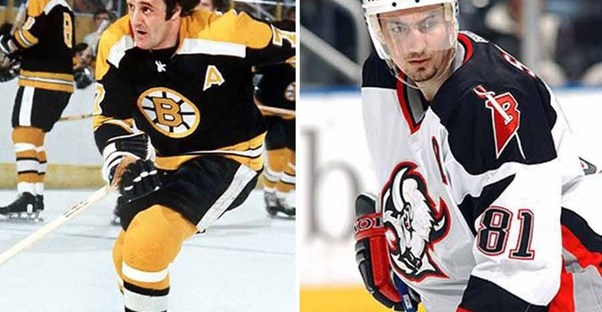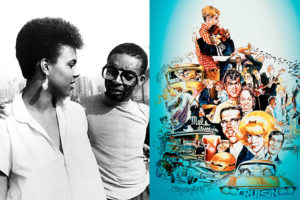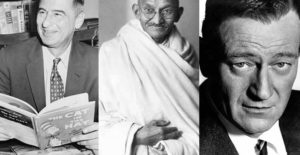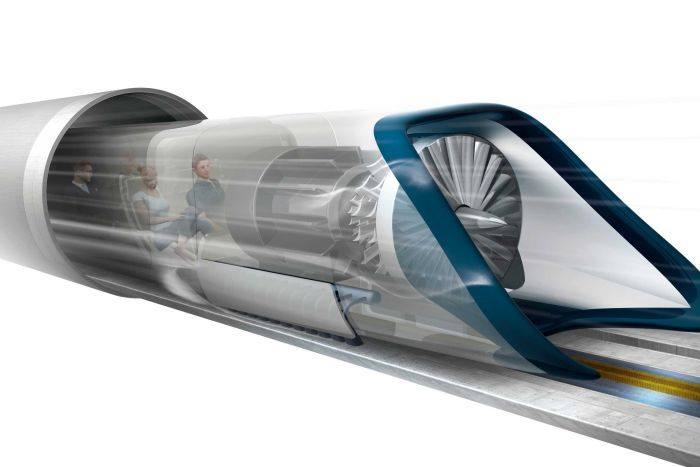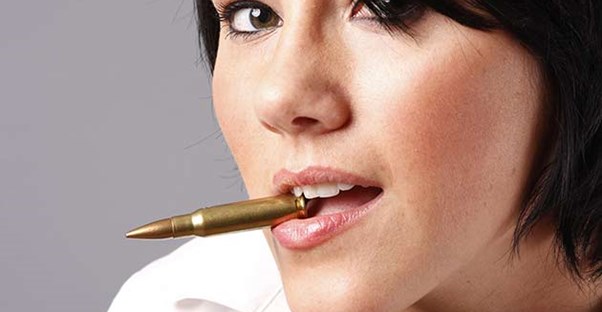20 Trades That Rocked the NHL World
Hockey, just like any other sport, can be filled with some of the most amazing and fun moments of someone's life. The goals, the players, the camaraderie—it's all a big part of such a fantastic sport. And then… there are these moments.
Every year hockey players and fans alike dread the most nightmarish and stressful of times: trade season. Trade season refers to the time when the NHL teams trade beloved players for different players or draft picks. These are mostly good because trades help a team fortify a weakness or bolster a strength while the player gets a change in scenery. Most of these trades usually work out well too, with both teams improving with the arrival of the new players.
Sometimes, the trade doesn't go so well. Trades can go south pretty quickly. Some trades are known for being completely one-sided. Some have even gone down in franchise histories as the worst trades ever made. While a lot of fans would rather forget about those trades and deals, it's much more fun to take a look at them and see exactly where they went wrong. Then, there's all the sweet, sweet aftermath. It might make you feel a bit better to know that it wasn't just your team that got swindled in a trade gone wrong.
We went and found 20 of the worst NHL trades in hockey history.
Calgary Flames, J.S. Giguere
The late '90s and early 2000s weren't kind to the Calgary Flames, and neither was their management. After appearing in 22 games over two seasons, Jean Sebastian Giguere was traded to the Anaheim Ducks for a second-round draft pick. During his time with the Ducks, Giguere won the Conn Smythe Trophy and Stanley Cup. This was considered as one of Craig Button's (then general manager of the Flames) worst moves during his time with them.
Atlanta Thrashers, Marian Hossa
The Atlanta Thrashers traded star player Hossa and Pascal Dupuis to the Pittsburgh Penguins for three other players and a first-round draft pick. This was a textbook example of a bad trade. Atlanta's takeaway didn't evolve into anything, but Hossa's future was bright with the Pens. Hossa bounced from the Pens to the Red Wings and finally to the Blackhawks, where he won two championships.
Florida Panthers, Roberto Luongo
In 2006, Dave Nonis took over the Vancouver Canucks from Brian Burke, and there was a massive hole in the net. Nonis traded a struggling Todd Bertuzzi, Alex Auld, and Bryan Allen to Florida for Roberto Luongo, Lukas Krajicek, and a sixth-round pick. Luongo became the face of the Vancouver Canucks, completely turning the franchise around. During his time with the Canucks, Luongo would become an Olympic gold medalist, while Bertuzzi switched jerseys five times after the trade.
Detroit Red Wings, Adam Oates
In 1989, the Red Wings traded budding superstar Oates to the St. Louis Blues, and though he only spent two and half seasons with them, he made his mark. Oates left his mark by helping boost Brett Hull to an NHL elite. While skating with Oates, Hull eclipsed the 70-goal mark three times, but he would never reach that mark again after Oates moved to Boston. What really hurt the Red Wings was that the returns for Oates wound up being complete fails and were retired and traded within a season.
Detroit Red Wings, Marcel Dionne
The Detroit Red Wings traded Dionne (after a 121-point season) and Bart Crashley to the L.A. Kings for two other players and a '76 second-round draft pick. So, why would you trade a player after such a good season? The team didn't like that player's contract and sent him off. The Red Wings players did fine, but none compared to Dionne. Dionne had five consecutive 100-point seasons over a decade with the Kings.
Vancouver Canucks, Cam Neely
In 1986, The Vancouver Canucks traded Cam Neely and their first-round pick to the Boston Bruins for Barry Pederson. This is easily one of the most lopsided trades in NHL history. Before the trade, Pederson's numbers were first-rate and offered what seemed to be a better deal compared to Neely. After the trade, though, all that changed. Pederson's numbers dropped while Neely flourished and he went on to have a Hall of Fame career and became president of the Bruins.
Edmonton Oilers, Wayne Gretzky
Rated the worst trade in history for many other listicles, we can't help but agree. Gretzky was considered Canada's greatest athlete and celebrity before he was shipped off to the L.A. Kings. Edmonton didn't take it well. The Oiler's G.M. even received death threats over the trade! The Olier's may have won the cup after the trade, but that didn't make things any better for fans. A couple of seasons after Gretzky left, so did two other great players, Mark Messier and Jari Kurri. Gretzky returned to the Oilers as a partner and vice-chairman in 2016, though we imagine the trade of '88 still stings.
Calgary Flames, Brett Hull
In 1988 the Calgary Flames traded 23-year-old Brett Hull in the middle of a great rookie season. Hull and Steve Bozek were exchanged to the St. Louis Blues for Rob Ramage (who only played with the Flames for one season) and Rick Wamsley (who didn't stand out much but was traded after four seasons). Hull became one of the most dynamic goal scorers in NHL history with the Blues. Hull stayed with the Blues for 11 years and scored 527 goals and 936 points before he was inducted to the Hockey Hall of Fame in 2009.
Edmonton Oilers, Mark Messier
In 1991, the Oilers made their second-worst trade in franchise history by sending Mark Messier to the N.Y. Rangers and exchanging him for Louie DeBrusk, Steven Rice, and Bernie Nicholls from the L.A. Kings. By age 29, Messier had already won five Stanley Cups with the Oilers and had plenty of mileage left. Messier went on to win a sixth Cup with the Rangers and scored 515 points in his first 422 games. He also won the Hart Memorial Trophy and Ted Lindsay Award. Messier was inducted to the Hockey Hall of Fame in 2007.
Pittsburgh Penguins, Markus Naslund
In 1996, the Pittsburgh Penguins traded Naslund to the Vancouver Canucks for Alex Stojanov. Stojanov only scored two goals and four assists across 45 games for the Pens. Naslund, on the other hand, went on to become one of the Canucks all-time leading goal scorers with 346 goals. Naslund stayed with the Canucks for 12 seasons and played in 884 games.
Chicago Blackhawks, Chris Chelios
In 1999, the Blackhawks traded Chris Chelios to the Red Wings for Anders Eriksson and two first-round picks. The Blackhawks expected that Chelios was almost out of gas and wanted to get something in return for him. Sadly for the Blackhawks, Chelios had a lot more left in him than they realized. Chelios helped the Red Wings to win two Stanley Cups and made three All-Star teams. Eriksson, however, never won any titles and never came close to Chelios.
Edmonton Oilers, Miroslav Satan
The Edmonton Oilers traded Miro Satan to the Buffalo Sabres for Craig Miller and Barrie Moore in 1997. Satan spent over seven seasons with the Sabres and scored 224 goals. On the other hand, Moore played in just four games for the Oilers and Miller scored just four goals in 36 games for them.
Calgary Flames, Doug Gilmour
In 1992, Gilmour was the focal point of negotiation during a major trade deal between the Calgary Flames and Toronto Maple Leafs. The Leafs traded Craig Berube, Alexander Godynyuk, Gary Leeman, Michael Petit, and Jeff Reese for Doug Gilmour, Kent Manderville, Jamie Macoun, Rick Nattress, and Rick Wamsley. Gilmour proved to be a significant asset for the Leaves, winning the Selk Trophy during the '92-'93 season for the best defensive forward in the NHL.
Florida Panthers, Dan Boyle
The Florida Panthers never fully utilized Dan Boyle, so it wasn't any surprise when they traded him to the Tampa Bay Lightning in '02. The Panthers got a fifth-round draft pick that never even played a shift in the NHL, while Boyle goes on to win the Stanley Cup the very next season. After playing with the Lightning, Boyle went on to play with the Sharks and the Rangers until he retired in 2016.
Ottawa Senators, Pavol Demitra
The Ottawa Senators traded Pavol Demitra for Christer Olsson from the St. Louis Blues in 1996, a trade they'd immediately regret. Olsson wound up being less than valuable as a goal scorer. After two independent goals in 25 games, he went on to play in Europe. Demitra, on the other hand, brought a new talent for shooting to his new team. Demitra had his best year ever after in with the Blues in 2002 by scoring 89 points and playing in the All-Star Game.
New Jersey Devils, Pat Verbeek
For what should've been an inconsequential trade of offensive players between the New Jersey Devils and the Hartford Whalers in 1989, Pat Verbeek was given to the Whalers in place of Sylvain Turgeon. The two were swapped due to Verbeek's demands for a better deal, the Devil's should've given in. After only a year, the Devils traded Turgeon while Verbeek established himself as a force to be reckoned with on the Whalers for the next six years. Verbeek scored 89 points in his first season with the time and was named the team MVP in his second year.
Boston Bruins, Tyler Seguin
The Bruins may have one of the best G.M.s in the NHL right now, but they weren't so fortunate about a decade ago when Peter Chiarelli was in charge. Chiarelli sent Tyler Seguin, Rich Peverley, and Ryan Button to the Dallas Stars in exchange for Loui Eriksson, Reilly Smith, Jow Morrow, and Matt Fraser. Smith and Eriksson were both successful in Boston, but neither of them remained there. Seguin, on the other hand, has gone on to be a Dallas superstar.
Montreal Canadiens, P.K. Subban
Trades are always hard on fans, especially when a fan-favorite on the roster is traded off. When that player is the talented and beloved P.K. Subban, then that trade can easily cause trouble for the franchise for years. Subban was traded to the Nashville Predators for Shea Weber. Since the trade, Subban went on to score 10 goals and 40 points in 66 games in his first season with the Predators. Weber, on the other hand, scored 17 goals and 42 points in 78 games in his first season with the Canadiens.
St. Louis Blues, T.J. Oshie
This trade was a bit of a genuine shock to the hockey community. The St. Louis Blues traded T.J. Oshie for Washington Capitals players Troy Brouwer, Phoenix Copley, and a 2016 third-round pick. Ultimately, Brouwer only played with the Blues for one season before signing on with the Flames, and Copley only played two disappointing games after the deal. Meanwhile, Oshie went on to help the Capitals win the 2017-2018 Stanley Cup for the first time in franchise history.
Blackhawks, Phil Esposito
In May 1967, the Blackhawks traded Phil Esposito and two others to Boston in exchange for Jack Norris, Pit Martin, and Gilles Marotte. Now, this is regarded as one of the most one-sided trades in NHL history. The Bruins got one of the greatest goal-scorers of all-time in Phil Esposito, who set a new record for goals in a season with 76 and won five Art Ross Trophies as the top point-getter for the league. The Bruins then went on to win the Stanley Cup in both 1970 and 1972. On the other hand, Norris stayed with the Blackhawks for just 10 games over two seasons. Martin and Marotte also didn't go on to be anything overly extraordinary.

